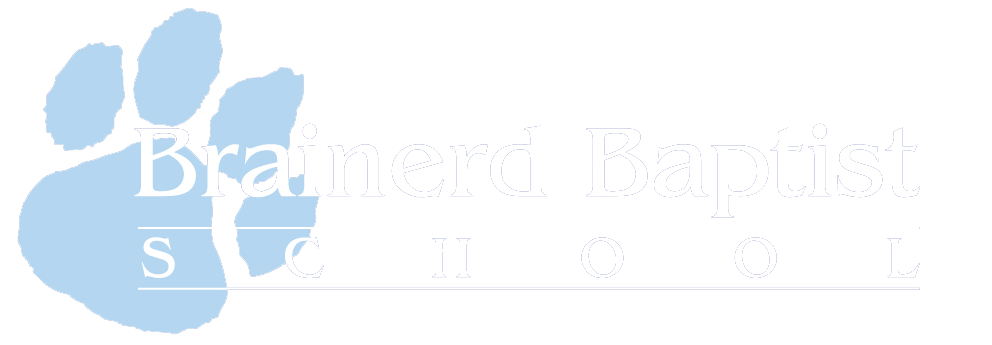What are Education Savings Accounts (ESA)?
In addition to the regular financial aid process available to all families, a new option is now accessible to families residing in Hamilton County. The Educational Savings Account (ESA) program started in 2021 in Davidson, Jackson, and Shelby counties and expanded in 2023 to include residents of Hamilton County. With the ESA, families are now able to take the money that the state allocates for their education at a public school and direct it toward the private school of their choice. For the 2025-2026 school year, the allocation is $9,346 per child. The primary objective of this legislation is to provide eligible parents with the freedom to choose the school they desire for their children. We have outlined some general guidelines below, and you can find additional information here.
ESA Deadlines for Private Schools in Chattanooga and Hamilton County
Applications must be submitted by August 1, 2025 for the 2025-2026 school year.
Applications submitted after August 2, 2025, will be evaluated for January 2026 admission at half the total ESA awarded sum. The enrollment for approved candidates for January 2026 must be completed by January 15, 2026, at the latest. Because the admission process has multiple steps, families that are interested in mid-year enrollment are encouraged to begin the process immediately.
What Private Schools in Chattanooga Accepts Education Savings Accounts (ESA)?
Schools interested in accepting the ESA must go through an application process with the state. Brainerd Baptist School is one of several schools in our city that has decided to participate. Schools that are participating in the ESA include:
| -Brainerd Baptist School | |
| -Avondale SDA | -Our Lady of Perpetual Help (OLPH) |
| -Berean Academy | -Silverdale Baptist Academy |
| -Chattanooga Christian | -Skyuka Hall |
| -Grace Baptist Academy | -St. Jude School |
How do you Apply for Education Savings Accounts (ESA) In Hamilton County and Chattanooga?
To qualify for the ESA, your student MUST meet one of three criteria:
Enroll at Brainerd Baptist School in Kindergarten in the 2025-2026 school year.
Have attended a public school for a full year or started Kindergarten during the 2019-20, 2020-21, or 2021-22 school years.
Move to Tennessee from out of state and enroll at Brainerd Baptist School (at any grade level and from any school) in the 2025-2026 school year.
In addition to these criteria, there are income requirements. Your annual household income* must be below the following levels:
2 household members maximum: $53,144
3 household members maximum: $67,132
4 household members maximum: $81,120
5 household members maximum: $95,108
6 household members maximum: $109,096
7 household members maximum: $123,084
8 household members maximum: $137,072
Each additional member beyond 8, increases value by $13,988
*Income levels will be based on and verified by your 2024 tax return.
Furthermore, all students in the 3rd, 4th, and 5th grades who receive the ESA grant will be required to take the standardized test given to all students enrolled in public schools in the state.
For any additional questions, please contact Chris Shields.
To schedule a tour with Brainerd Baptist School, click here
Tour Checklist for Parents Considering Using Educational Savings Accounts in Chattanooga and Hamilton County
Consider the following checklist to guide your school tour and interactions with school personnel, ensuring a good fit for your child’s education:
Request a School Tour:
Speak with school personnel about specific queries regarding your child and the school’s alignment with your values and expectations.
Explore any particular interests your child has or programs they participated in at their previous school and wish to continue.
Observation & Inquiry During Visit:
Inquire about class size, programs and observe classrooms to gauge the school’s fit for your child.
Evaluate the technology policy, student-teacher interactions, classroom organization, and other teaching methodologies.
Admission Requirements:
Check for any entrance or placement exams required.
Investigate the availability of financial aid or scholarships and their compatibility with the ESA.
Financial Considerations:
Look into scholarships for extracurricular activities, after-school care, sports uniforms, or field trips.
Understand the meal plan policy and the cost of meals.
Daily Logistics:
Learn the school’s schedule, early drop-off, and late pick-up policies, including any associated fees.
Discover the common modes of transportation for students and if any transportation services are offered by the school.
Academic & Extracurricular Offerings:
Delve into the non-academic classes offered, such as art, foreign languages, music, and physical education.
Explore the curriculum, required reading list, and the types of assessments used.
Student Support & Progress Monitoring:
Ask about the availability of study hall, teacher support, classroom libraries, and science labs.
Understand how student progress is monitored and communicated to parents.
Emotional & Behavioral Support:
Inquire about support provided for students struggling academically, emotionally, or behaviorally.
Engagement & Community:
Look for clubs, leadership opportunities, and parent involvement in school activities.
Evaluate the sense of community, inclusion, and alignment with your family values.
Safety & Communication:
Understand the school’s safety protocols, visitor policy, and emergency communication procedures.
Explore the school’s code of conduct and behavior policies to see if they reflect your family’s values.
Online Portal & Community Service:
Ask about any school portal for checking progress and how often it should be reviewed.
Inquire about requirements for community service, club, or sports participation.
Facilities & Display of Student Work:
Evaluate the facilities, outside activity spaces, and observe the student work on display.
This list aims to cover a wide range of considerations to help ensure the school you choose aligns well with your child’s needs and your family’s values.
